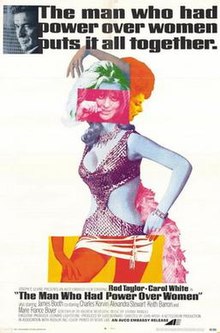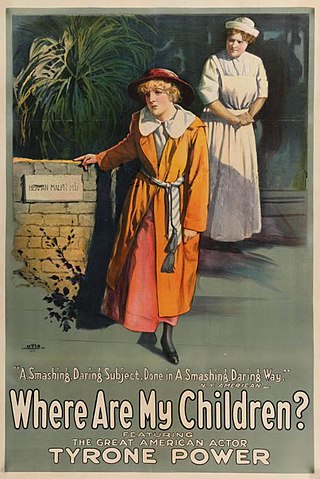
Where Are My Children? is a 1916 American silent drama film directed by Phillips Smalley and Lois Weber and stars Tyrone Power Sr., Juan de la Cruz, Helen Riaume, Marie Walcamp, Cora Drew, A.D. Blake, Rene Rogers, William Haben and C. Norman Hammond. The film tells the story of a district attorney who, while prosecuting a doctor for illegal abortions, finds out that society people, including his wife, used the doctor's services.
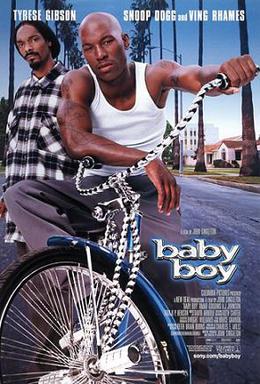
Baby Boy is a 2001 American coming-of-age hood drama film directed, written, and produced by John Singleton and starring Tyrese Gibson, Snoop Dogg, Ving Rhames, Omar Gooding, A.J. Johnson and Taraji P. Henson. The film follows Joseph "Jody" Summers (Gibson), a 20-year-old bike mechanic as he lives and learns in his everyday life in the hood of Los Angeles.

Rodney Sturt Taylor was an Australian actor. He appeared in more than 50 feature films, including Young Cassidy (1965), Nobody Runs Forever (1968), The Train Robbers (1973) and A Matter of Wife... and Death (1975).
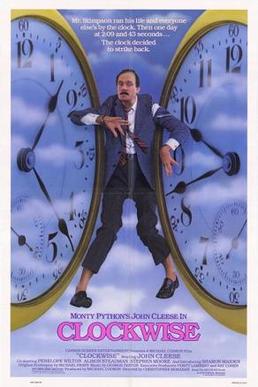
Clockwise is an absurdist 1986 British comedy road film starring John Cleese, directed by Christopher Morahan, written by Michael Frayn and produced by Michael Codron. The film's music was composed by George Fenton.

Hotel is a 1967 American Technicolor drama film, an adaptation of Arthur Hailey's 1965 novel of the same name. The film stars Rod Taylor, Catherine Spaak, Karl Malden, Kevin McCarthy, Michael Rennie, Merle Oberon, and Melvyn Douglas. It is directed by Richard Quine.

The Day the Earth Caught Fire is a 1961 British science fiction disaster film directed by Val Guest and starring Edward Judd, Leo McKern and Janet Munro. It is known as one of the classic apocalyptic films of its era. The film opened at the Odeon Marble Arch in London on 23 November 1961. In August 2014 a restored version was screened at the British Museum's summer open air cinema.

Term of Trial is a 1962 British drama film written and directed by Peter Glenville and starring Laurence Olivier, Simone Signoret, Sarah Miles, Terence Stamp, Hugh Griffith, Roland Culver, Dudley Foster and Thora Hird. It was produced by James Woolf for Romulus Films, with James H. Ware as associate producer. The screenplay was based on the 1961 novel of the same name by James Barlow. The music score was by Jean-Michel Damase and the cinematography by Oswald Morris.

Kaw is a 2006 made-for-television horror film directed by Sheldon Wilson and starring Sean Patrick Flanery, Stephen McHattie, Kristin Booth, and Rod Taylor. An international co-production of Canada and the United States, Kaw is a Sci Fi Pictures original film. The film's plot, which follows a town besieged by hostile ravens, is similar to that of The Birds (1963)—which also starred Taylor—and has been called an homage or modernization of the older film.

Emergency Call, released in the US as The Hundred Hour Hunt, is a 1952 British drama film directed by Lewis Gilbert and starring Jack Warner, Anthony Steel, Joy Shelton and Sid James. It was distributed by Butcher's Film Service. The film was a noted success compared to its small budget and helped establish Gilbert as a director. It was remade in 1962 as Emergency.

Dark of the Sun is a 1968 British adventure war film starring Rod Taylor, Yvette Mimieux, Jim Brown, and Peter Carsten. The film, which was directed by Jack Cardiff, is based on Wilbur Smith's 1965 novel, The Dark of the Sun. The story about a band of mercenaries sent on a dangerous mission during the Congo Crisis was adapted into a screenplay by Ranald MacDougall. Critics condemned the film on its original release for its graphic scenes of violence and torture.

Fortunes of War is a 1987 BBC television adaptation of Olivia Manning's cycle of novels Fortunes of War. It stars Kenneth Branagh as Guy Pringle, lecturer in English Literature in Bucharest during the early part of the Second World War, and Emma Thompson as his wife Harriet. Kenneth Branagh and Emma Thompson met filming the TV series and married in real life. Other cast members included Ronald Pickup, Robert Stephens, Alan Bennett, Philip Madoc and Rupert Graves.

The Magnet is a 1950 British black and white comedy film directed by Charles Frend, featuring Stephen Murray, Kay Walsh, and in his first starring role James Fox. A young Wallasey boy obtains a magnet by deception, leading to much confusion. When he is acclaimed as a hero, he is shamed by his own sense of guilt.

80,000 Suspects is a 1963 black-and-white British drama film directed by Val Guest and starring Claire Bloom, Richard Johnson, Yolande Donlan, and Cyril Cusack. It is based on the 1957 novel Pillars of Midnight by Elleston Trevor. An outbreak of smallpox in Bath, England, leads to a race to contain the virus.
Darker than Amber is a 1970 film adaptation of John D. MacDonald's 1966 mystery/suspense novel, Darker than Amber. It was directed by Robert Clouse from a screenplay by MacDonald and Ed Waters.

Mrs. Gibbons' Boys is a black and white 1962 British comedy film directed by Max Varnel and starring Kathleen Harrison, Lionel Jeffries and Diana Dors. It is based on the play of the same name by Joseph Stein and Will Glickman, and was released in the UK as the bottom half of a double bill with Constantine and the Cross (1961).
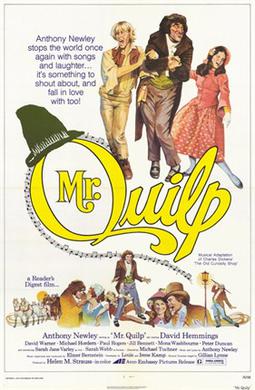
Mister Quilp is a 1975 British musical film directed by Michael Tuchner and starring Anthony Newley, David Hemmings and Jill Bennett. It is based on the 1841 novel The Old Curiosity Shop by Charles Dickens.

The Man in the Mirror is a 1936 British comedy film, directed by Maurice Elvey and starring Edward Everett Horton, Genevieve Tobin and Ursula Jeans.

No Time for Tears is a 1957 British drama film directed by Cyril Frankel in CinemaScope and Eastman Color and starring Anna Neagle, George Baker, Sylvia Syms and Anthony Quayle. The staff at a children's hospital struggle with their workload.
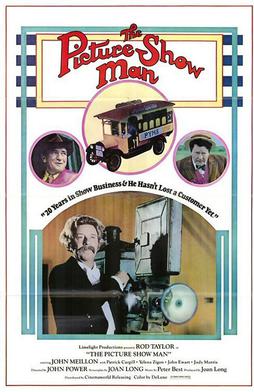
The Picture Show Man is a 1977 Australian film about a travelling film exhibitor in the 1920s. He has to deal with the rebelliousness of his son and a rival American exhibitor.

Peter Reynolds was an English actor.
